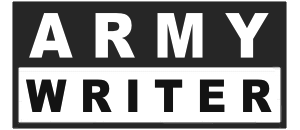Purpose of Counseling
o Event-Oriented Counseling: Failure to follow the proper procedures for Cosmetic/ Elective Surgery
Key Points of Discussion
SPC YOU, on May 28, 2021, you voluntarily underwent Anterior Segmental Osteotomy Orthodontic Surgery. The location for this surgery was in DA Plastic Surgery Clinic in Seoul, South Korea. The Surgery was conducted outside the military health system without the approval of either your Primary Care Physician nor your Chain of Command. This was solely your decision and was not influenced by any other person. On May 3, 2021, you informed me of the surgery and I told you to go to sick call the next day.
SPC YOU, active-duty personnel will not seek cosmetic surgery outside of the military health system without authorization from their primary care manager and approval from their chain of command. Readiness is our Mission. The time you spend in recovery is time you are not available to execute the mission. As such, the commander must approve the timing of your surgery, taking into consideration your post-operative personal leave and expected length of duty/mobility restrictions. This is essential to preserve unit readiness. Secondly, in accordance with Chapter 4, Section 1.1 TRICARE Policy Manual 6010.57-M dated Feb.1 2008, TRICARE does not cover complications that commonly result from non-covered or unauthorized elective or cosmetic surgery.
SPC YOU, failing to follow the proper procedures is the same as disobeying a lawful order. Failure to follow orders is a Violation of Article 92 (failure to obey order or regulation) of the UCMJ. This may result in punitive action under the UCMJ and/or initiation of separation UP AR 635-200. Separation action may result in your service being characterized as Honorable, General, or Under Other Than Honorable Conditions (UOTH). An Honorable Discharge entitles you to receive all discharge benefits. A General Discharge may result in substantial prejudice in civilian life and loss of certain benefits, such as civil service retirement credit and educational assistance. An UOTH Discharge could result in substantial prejudice in civilian life, and may result in the loss of most or all benefits as a veteran under both Federal and State laws. Some of the benefits you would not be eligible for with an UOTH discharge are payment for accrued leave, health benefits, civil service preference, reemployment rights, unemployment compensation and naturalization benefits. An involuntary separation might result in recumbent of unearned enlistment bonuses, a loss of G.I. Bill or VEAP educational benefits, and no separation pay. It is very difficult to upgrade a less than honorable discharge.
Plan of Action
- You will monitor your health and the site of surgery for any irregularities and report it to your Primary Care provider.
- You will take your medication as prescribed and take care of the surgery site as advised by your Primary Care provider.


